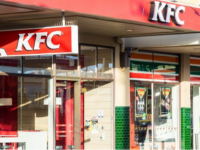Muzz Buzz executive chairman Warren Reynolds is warning businesses to prepare for customers to tighten their belts as we face an economic downturn next year.
“Consumers and businesses are hurting at the moment, we all know that. I think both sides need to expect to deal with some tough economic times in the immediate future.
“From our customers perspective we know they’re dealing with an increase in their mortgage repayments, their groceries are going up, and it costs more to fill up the car.”
“But businesses are also dealing with the same cost pressures, their rents are rising, produce is more expensive, and the cost of transporting goods is also rising. And unfortunately, some of those costs have to get passed on to consumers.”
Reynolds said the cost of green beans has continued to rise putting pressure on cafe owners to increase the costs of a cup of coffee.
“We’re going to try hard not to pass that cost onto customers. I would expect to see consumer spending drop in the early part of next year, and so we want to deliver consistent prices where we can.”
Reynolds said business owners can take steps to minimise the volatility.
Five ways to beat the economic blues in 2023
Negotiate contracts and leases where possible
Now is the time to re-negotiate leases and contracts, to ensure value for money. “If possible, perhaps you can offer longer tenure in exchange for an overall reduced rate. It’s definitely worth asking the question.”
Look after your staff
Skills shortages are affecting all sectors and it is vital to hold onto good staff. Paying higher wages is one way to keep employees.
However Reynolds acknowledged that is not always possible and valuing and appreciating staff is also key to staff retention.
He also recommended flexible rostering, additional days off and training and career progression opportunities.
Customer service
As consumers continue to tighten their belts, great service can make the difference between a customer returning or taking their money elsewhere.
Local suppliers
Where possible, businesses should source local, to assist in maintaining security of supply.
While this may not always be the cheapest option, having strong relationships with local suppliers may provide supply security. Ordering from interstate or overseas may mean enduring long wait times.
Online and delivery models
Online and delivery service models are only increasing in popularity, he said, as consumers weigh up the costs of their own petrol usage with rising fuel prices.
“It’s so easy for people to order online and have all kinds of products delivered to their door. As a business it’s important that you make the process as simple and as easy as you can for customers.”
Other costs to expect
Reynolds highlighted other cost pressures for businesses in early 2023. These include sustainability costs, such as the next step of the WA Government’s Plan For Plastics, which will see the phase out of plastic coffee cups.
“That’s going to be another cost impost that businesses will either have to cop on the chin, or pass on to consumers.”
New South Wales has recently introduced a ban on single use plastics.
“We’re also expecting the price of some fresh produce to rise as a result of floods on the east coast, with some fruit and veg likely to be in short supply.”
Despite the economic outlook, Reynolds said he is not pessimistic about what to expect in 2023, but rather is realistic.
“Harder times are coming. Businesses need to go into the New Year with their eyes wide open, and know what to expect, to ensure they can ride out the economic storm.”
















